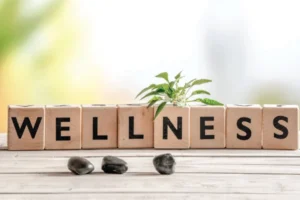Energy keeps us focused and excited about life. However, many people experience low energy levels during the day due to stress, bad habits, or a lack of self-care. Daily well-being is crucial for increasing your energy levels, and even simple adjustments to your daily routine can have a significant impact on your energy and motivation. By learning how to improve your physical and mental well-being with simple techniques, you can create a lifestyle that enhances your productivity, happiness, and overall health.
How Getting Enough Sleep Affects Your Energy Levels
Sleep is an important factor in maintaining high energy levels, but it’s often overlooked. Staying up late, using electronic devices late at night, or having an irregular sleep schedule can leave you feeling exhausted the next day. A regular sleep schedule helps the body recharge and recover. Going to bed and waking up at the same time every day helps maintain your body’s natural rhythm, keeping your energy levels consistent. Adequate sleep not only prevents fatigue but also helps you focus and feel better, which directly impacts your energy throughout the day.
Food is Your Body’s Fuel
The food we eat provides most of our energy, and the food choices we make every day have a significant impact on our health. A nutritious diet, including whole grains, fruits, vegetables, and proteins, can keep you energized all day long. Processed foods, excess sugar, and caffeine can give you a short energy boost, but often leave you feeling tired after a while. A balanced diet and plenty of fluids keep your body healthy. Think of food as fuel that keeps you energized all day long.
Movement as a Natural Energy Booster
Exercise may seem tiring, but it’s one of the best ways to boost your energy. It gets your blood flowing, strengthens your muscles, and releases endorphins, making you feel more energized. Stretching in the morning, short walks during breaks, or light yoga are all simple and easy exercises that can feel good both physically and mentally. Even if you’re exhausted, a little exercise can boost your energy and help you focus. When you incorporate exercise into your daily routine, you start a cycle: exercise gives you energy, and that energy makes you want to exercise more.
The Relationship Between Stress and Energy
Stress depletes your energy faster than anything else. Excessive worrying drains your mental and physical energy, which could be better spent on other productive activities. Deep breathing, meditation, and mindful breaks are healthy daily habits that can help you relax and conserve energy. Managing stress doesn’t mean avoiding problems; it means addressing them in a balanced and empowering way. Managing daily stress can prevent your body from feeling drained by a loss of energy. A calm mindset makes your body feel more energized.
The Importance of Staying Hydrated for Your Daily Health
People don’t often think of water as an energy booster, but not drinking enough is one of the main reasons people feel tired. Even mild dehydration can make it difficult to concentrate, decrease your physical energy, and leave you feeling tired. Drinking enough water throughout the day helps with circulation, digestion, and brain function, all of which provide you with energy. Staying hydrated naturally gives you more energy than consuming sugary drinks or excessive amounts of coffee. Simple things like carrying a water bottle, starting your day with a glass of water, and drinking water regularly can help you feel better and have more energy.
Recharge with Mindful Rest
If you work or stay active without resting, you quickly become exhausted. To maintain a stable energy level, both your body and mind need rest. Short breaks throughout the day, such as stretching, deep breathing, or going outside, can help you refocus. These mindfulness breaks can prevent overexertion and even out your energy. You can maximize your energy reserves by balancing movement and rest in your daily routine.
The Role of Environment in Energy Levels
Where you spend your time directly affects your energy. A dirty, cluttered, or poorly lit room can leave you mentally drained, while a clean, tidy, and well-lit space can help you focus and feel better. More natural light, fresh air, and a comfortable environment can boost your energy. Small things like opening windows, clearing clutter, or adding soothing items to your home can make a big difference. A supportive environment not only improves your health but also prevents you from wasting unnecessary energy on distractions or discomfort.
Energy Balance and Emotional Well-Being
How you feel significantly impacts your daily energy levels. Anger, despair, and frustration are negative emotions that drain your energy. Joy, gratitude, and hope are positive emotions that boost your mood and energy. Building meaningful relationships, taking care of yourself, and practicing gratitude can all help you have more energy. When emotions are processed healthily, your body feels lighter and your mind is more focused. By prioritizing your mental health, stress isn’t wasted energy; you can use it to improve your daily life.
Conclusion
Daily Wellness Tips offer simple and effective strategies for staying healthy and energetic every day. These habits, such as getting enough sleep, eating healthy, taking regular breaks, drinking plenty of water, and managing your emotions, form the daily routines necessary to maintain your physical and mental health. Having energy doesn’t just mean not feeling tired; it also means living a life that helps you stay focused, get things done, and stay happy. By regularly following a few small wellness tips, you can maintain a steady flow of energy that will help you excel in all aspects of your life. Staying healthy is the key to more energy, a healthier life, and a happier one.
FAQs
1. Why do I still feel worn out even though I get enough sleep?
Even with enough sleep, stress, a poor diet, dehydration, or lack of exercise can make you tired.
2. Which foods can naturally provide you more energy?
Whole foods like fruits, vegetables, whole grains, lean meats, and nuts provide a sustained energy boost without unexpected dips.
3. Does exercise actually provide you more energy instead of draining it?
Yes, regular exercise improves blood circulation, produces endorphins, and improves your overall fitness, all of which can help you feel more energetic.
4. How much water should I drink daily to feel more energetic?
For most people, eight glasses of water a day is a healthy amount, but the exact amount you should drink depends on your physical condition, how active you are, and where you live.
5. Do short breaks at work really make you more energetic?
Yes, well-considered breaks can rejuvenate your mind and body, keeping you focused and productive and reducing fatigue.




